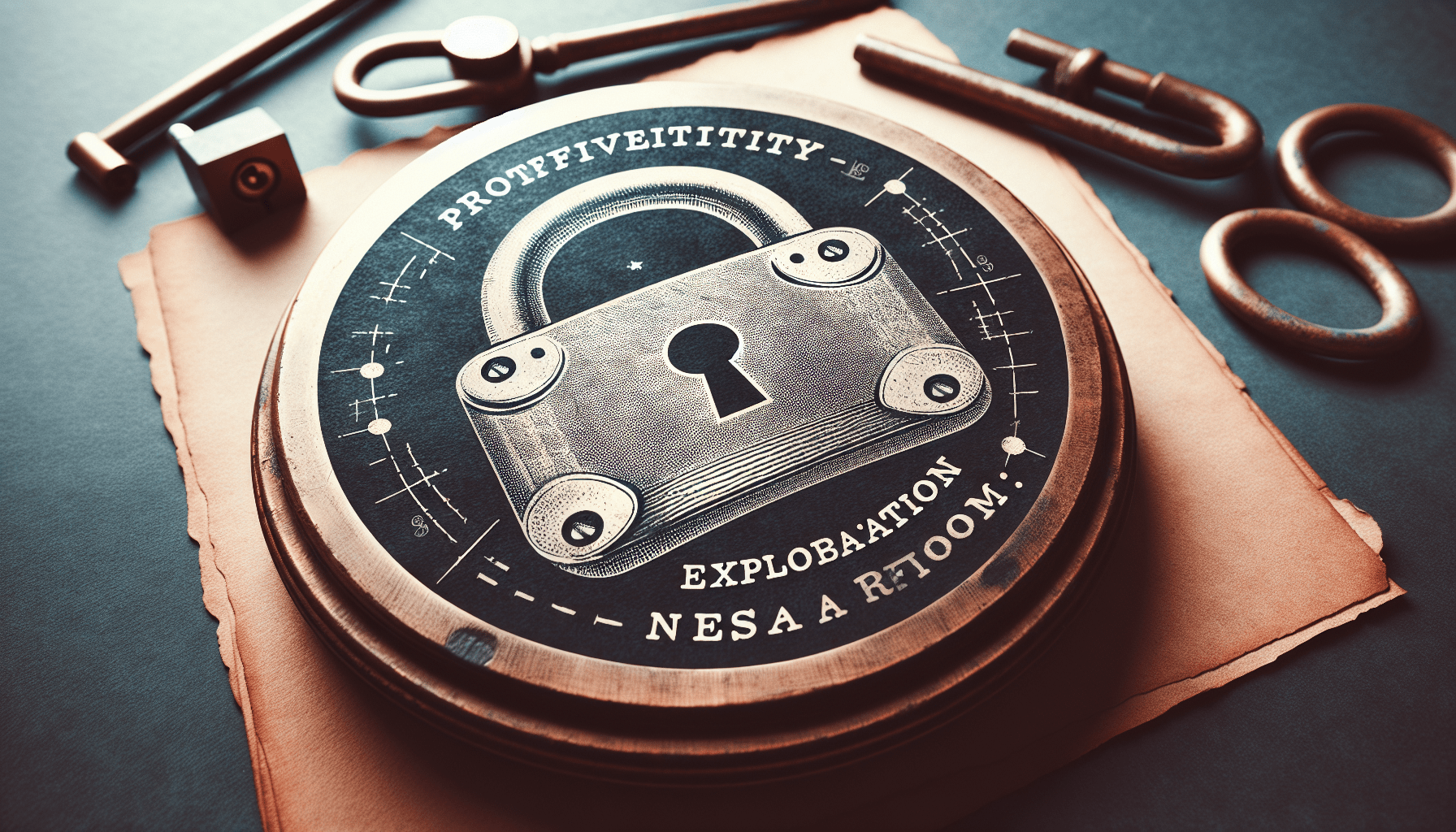Have you ever wondered if owning an escape room is a profitable venture? If so, you’re not alone. Many enthusiasts of these immersive and puzzling experiences are curious about the financial potential behind running an escape room business. In this article, we’ll explore the profitability of owning an escape room, taking into account the increasing popularity of this form of entertainment and the factors that can contribute to its success. So, if you’re considering diving into the world of escape rooms as a business opportunity, keep reading to discover if it may be a lucrative endeavor for you.
Start-up Costs
Location and Rent
When starting an escape room business, one of the first considerations is finding the right location. You’ll want to choose a spot that is easily accessible to your target audience and has a good amount of foot traffic. Rent will vary depending on the city and specific location, so it’s important to factor this into your start-up costs. Keep in mind that choosing a prime location may come with a higher rent, but it can also attract more customers and result in higher revenues.
Room Construction and Design
The success of an escape room largely depends on its room construction and design. A well-designed room with high-quality puzzles and props can enhance the overall experience for players and keep them coming back for more. It’s important to invest in sturdy construction and creative design to ensure the rooms are immersive and engaging. Depending on the complexity of your themes and puzzles, the construction and design expenses can vary.
Puzzles and Props
Puzzles and props are essential components of an escape room. They are what make the experience challenging and exciting for participants. Investing in a variety of puzzles and props, ranging from locks and keys to electronic devices and hidden compartments, will enhance the overall experience. It’s important to regularly update and replace worn-out or outdated puzzles and props to keep the rooms fresh and exciting for repeat players. The cost of puzzles and props can vary based on the complexity and quality you choose.
Technology and Audiovisual Equipment
Escape rooms often incorporate technology and audiovisual equipment to create a more immersive experience. This may include sound systems, video projections, and electronic puzzles. While these investments can significantly enhance the overall experience, they can also add to the start-up costs. It’s crucial to carefully consider the technology and audiovisual equipment needed for your specific themes and budget accordingly.
Insurance and Licensing
As with any business, insurance and licensing are vital considerations for an escape room. It’s important to protect your business and customers from potential liabilities by obtaining proper insurance coverage. Additionally, depending on your location, you may need to secure specific licenses and permits to operate legally. These costs should be accounted for in your start-up budget to ensure compliance with regulations and mitigate risks.
Operating Expenses
Employee Wages
Operating an escape room requires a team to manage and facilitate the games. This includes game masters, receptionists, and potentially technicians for maintenance and repairs. Employee wages can be a significant expense, especially if your business operates with extended hours or on weekends and holidays. However, investing in skilled and friendly staff is crucial for providing an exceptional customer experience and ensuring the smooth operation of the business.
Utilities
Utilities, such as electricity, water, and internet, are essential for running an escape room. The costs will vary depending on the size and number of rooms, as well as the location of the business. It’s important to budget for these expenses and consider energy-efficient options to minimize operating costs in the long run.
Marketing and Advertising
To attract customers, it’s essential to invest in marketing and advertising efforts. This can include online marketing, social media campaigns, print advertisements, and collaborations with local tourism organizations. Allocating a portion of your operating expenses to marketing and advertising will help generate awareness and increase bookings. It’s important to continuously evaluate and adjust your marketing strategies to ensure they are reaching your target audience effectively.
Maintenance and Repairs
Over time, escape rooms may require regular maintenance and repairs to ensure everything is in working order. This includes fixing broken props, replacing damaged locks, and maintaining the overall safety of the rooms. Budgeting for ongoing maintenance and repairs is necessary to maintain the quality of the experience and ensure customer satisfaction.

Revenue Generation
Ticket Sales
The primary source of revenue for an escape room business is through ticket sales. The price of tickets should be carefully determined, considering factors such as the local market, competition, and the quality of the experience offered. Offering different types of games, such as different themes or difficulty levels, can allow you to cater to a wider audience and potentially increase ticket sales.
Corporate and Group Bookings
Escape rooms are often popular for team-building exercises and group outings. Offering special packages and group discounts can attract corporate clients and social groups, increasing revenue potential. Maintaining good relationships and partnerships with local businesses and organizations can also lead to consistent group bookings.
Partnerships with Tourism Industry
Collaborating with the tourism industry can help attract visitors and increase bookings. This can include partnering with hotels, travel agencies, and local attractions to offer package deals or cross-promotion. By leveraging the existing customer base of these partners, your escape room business can gain exposure to a wider audience and generate additional revenue.
Gift Vouchers and Merchandise Sales
Providing gift vouchers and selling merchandise, such as t-shirts or accessories related to your escape room themes, can serve as additional revenue streams. Customers can purchase gift vouchers for friends or family, and merchandise can serve as a memorable keepsake for participants. These add-on offerings can not only generate extra revenue but also help promote your brand and increase customer loyalty.
Factors Affecting Profitability
Location and Market Demand
The location of your escape room and the demand in that particular market can greatly impact profitability. Choosing a location with high foot traffic and limited competition can increase the number of potential customers. Additionally, being situated in an area with strong tourism can attract both locals and visitors. Conducting thorough market research to understand the demand and competition in your chosen location is essential for maximizing profitability.
Competition
Escape rooms have gained popularity over the years, which has led to an increase in competition. The number of competing rooms in your area can affect your profitability. It’s important to differentiate your escape room by offering unique themes, innovative puzzles, or exceptional customer service. Regularly updating and refreshing your rooms can help you stay ahead of the competition and attract repeat customers.
Room Themes and Difficulty Levels
The selection of room themes and difficulty levels can impact the appeal and replay value of your escape rooms. Offering a variety of themes can attract a wider audience and promote word-of-mouth referrals. Similarly, providing different difficulty levels can cater to both novice and experienced players. Striking a balance between challenging puzzles and enjoyable gameplay is important for ensuring customer satisfaction and maximizing profitability.
Quality of Experience
The success of an escape room ultimately relies on the quality of the experience it offers. Providing well-designed rooms, high-quality puzzles, and excellent customer service can lead to positive reviews and recommendations. Ensuring a smooth and immersive experience for players is vital for repeat business and maintaining a positive reputation.
Marketing Strategy
A well-executed marketing strategy can significantly impact profitability. Utilizing various marketing channels, such as social media, online advertisements, and collaborations with influencers, can help increase brand visibility and attract new customers. It’s important to regularly evaluate the effectiveness of your marketing efforts and adapt your strategy accordingly to achieve maximum results.
Employee Efficiency and Training
Efficient and well-trained employees are crucial for the smooth operation of an escape room business. Investing in employee training ensures that your staff has the necessary skills to provide excellent customer service and handle various scenarios during gameplay. Efficient employees can also contribute to higher room turnover and increased customer satisfaction, ultimately impacting profitability.

Business Considerations
Licensing and Legal Requirements
Starting an escape room business requires complying with licensing and legal requirements. These can vary depending on the jurisdiction and may include obtaining specific permits, ensuring fire safety regulations are met, and following health and safety guidelines. Familiarizing yourself with the necessary licenses and requirements is essential to operate legally and avoid potential fines or shutdowns.
Insurance Coverage
Securing appropriate insurance coverage is crucial for protecting your escape room business. Insurance policies can cover liabilities such as accidents, injuries, property damage, and theft. It’s important to work with insurance providers who specialize in the unique risks associated with escape rooms to ensure comprehensive coverage.
Customer Safety and Liability
Safety should always be a top priority in an escape room business. Designing rooms that adhere to safety regulations, regularly inspecting and maintaining props and equipment, and providing clear instructions to participants are essential steps in minimizing the risk of accidents or injuries. Proactively assessing and mitigating potential safety hazards is crucial for protecting your customers and your business from liability.
Room Maintenance and Upgrades
Regular maintenance and periodic upgrades of your escape rooms are necessary to ensure a high-quality experience for players. This includes repairing or replacing broken props, refreshing themes, and updating puzzles to keep them challenging and engaging. Allocating a portion of your budget towards room maintenance and upgrades is essential for staying competitive and ensuring customer satisfaction.
Customer Feedback and Reviews
Listening to customer feedback and reviews can provide valuable insights for improving your escape room business. Pay attention to both positive and negative feedback, and take necessary steps to address areas for improvement. Engaging with your customers and implementing their suggestions can lead to increased customer satisfaction, positive reviews, and ultimately, improved profitability.
Industry Trends and Growth
Increasing Popularity of Escape Rooms
Escape rooms have witnessed exponential growth in popularity in recent years. They have become a popular form of entertainment for people of all ages and backgrounds. This increase in demand presents an opportunity for new escape room businesses to thrive. Capitalizing on this trend and providing unique and memorable experiences can contribute to long-term success and profitability.
Expansion into Virtual Reality (VR) Rooms
An emerging trend in the escape room industry is the incorporation of virtual reality (VR) technology into room experiences. VR rooms offer a more immersive and interactive escape room experience by combining real-life puzzles with virtual elements. By staying ahead of technological advancements and incorporating VR into your business, you can attract a broader customer base and potentially increase profitability.
Collaborations with Film and Entertainment Industries
Escape rooms have ventured into collaborations with the film and entertainment industries to create themed rooms based on popular movies or TV shows. These collaborations can attract fans of specific franchises and generate buzz around your escape room business. By capitalizing on existing fan bases, you can increase brand visibility and potentially drive higher ticket sales.
Emerging Trends in Puzzles and Technology
Keeping up with emerging trends in puzzles and technology is crucial for staying relevant and appealing to customers. Innovations, such as interactive puzzles, augmented reality elements, or gamification techniques, can enhance the overall escape room experience and attract tech-savvy customers. Regularly incorporating new puzzle trends and technology can differentiate your business and contribute to long-term profitability.
Success Stories
Examples of Highly Profitable Escape Room Businesses
Several escape room businesses have successfully become highly profitable ventures. For example, The Escape Game, headquartered in Nashville, Tennessee, has expanded to multiple locations across the United States and consistently ranks among the top escape room companies. The Escapology franchise, with locations worldwide, has also experienced significant success and profitability.
Strategies and Tactics Employed by Successful Owners
Successful escape room owners often employ various strategies and tactics to drive profitability. These include offering unique and immersive room experiences, fostering positive customer relationships, investing in marketing efforts to increase visibility, and continually updating and refreshing rooms. Additionally, successful owners focus on maintaining a high level of customer satisfaction through excellent customer service and attention to detail.
Challenges and Risks
High Initial Investment
The start-up costs associated with opening an escape room business can be substantial. From room construction and design to technology investments and marketing expenses, the initial investment can be a significant financial hurdle. Proper budgeting and financial planning are necessary to ensure a successful launch and manage the financial challenges that come with a start-up.
Seasonal Fluctuations in Demand
Demand for escape rooms may experience seasonal fluctuations, with peak periods during holidays and vacations. Managing the slower periods and maintaining profitability during off-peak times can be a challenge. Strategic marketing efforts, targeting specific customer segments, and offering special promotions during slower periods can help mitigate the impact of seasonal fluctuations.
Saturated Market in Some Areas
Escape rooms have gained popularity, leading to a saturated market in some areas. Increased competition can make it challenging for new businesses to attract customers. To thrive in a saturated market, it’s crucial to differentiate your escape room through unique themes, outstanding customer service, and continuous innovation. Strong marketing and advertising strategies are also necessary to stand out in a crowded landscape.
Maintaining Consistently High Customer Satisfaction
Providing a consistently high level of customer satisfaction is crucial for the success of an escape room business. It’s essential to regularly update rooms, puzzles, and props to offer fresh experiences to repeat customers. Additionally, ensuring that customer service is exceptional from the moment they book their tickets until they exit the room is vital for positive reviews and repeat business.
Potential Shortage of Skilled Employees
Finding skilled employees who can effectively manage escape room games, provide excellent customer service, and handle maintenance and repairs can be a challenge. The unique skills and knowledge required may necessitate thorough training and ongoing development programs. Offering competitive wages, a positive work environment, and opportunities for growth can help attract and retain skilled employees in a competitive job market.

Potential Profitability
Estimating ROI (Return on Investment)
Estimating the return on investment for an escape room business can be complex, as it depends on various factors such as start-up costs, operating expenses, and revenue generation potential. Conducting a thorough financial analysis, including projected revenue and expenses, can help provide a realistic estimation of the ROI. It’s important to consider both short-term and long-term profitability when assessing the potential return on investment.
Factors Influencing Profit Margins
Profit margins in the escape room industry can be influenced by various factors. This includes ticket prices, operating expenses, room occupancy rates, and customer retention rates. Offering premium experiences, maximizing room occupancy, and implementing cost-saving measures can all contribute to higher profit margins. Regularly monitoring and analyzing these factors is essential for optimizing profitability.
Case Studies and Average Profitability Statistics
While profitability can vary depending on factors such as location, competition, and market demand, case studies and average profitability statistics can provide insights into the potential financial performance of escape room businesses. Researching successful escape room businesses in similar markets and analyzing industry reports can help understand the average profitability potential. However, it’s important to tailor these insights to your specific business model and market conditions.
Conclusion
Owning an escape room can be a profitable venture with the right planning, execution, and ongoing attention to customer satisfaction and industry trends. Understanding the start-up costs, operating expenses, and revenue generation potential is crucial for financial success. By considering factors such as location, competition, room construction, and marketing strategies, aspiring escape room owners can maximize profitability and create an exceptional experience for their customers. While challenges and risks exist, proper management and strategic decision-making can lead to a successful and profitable escape room business.


